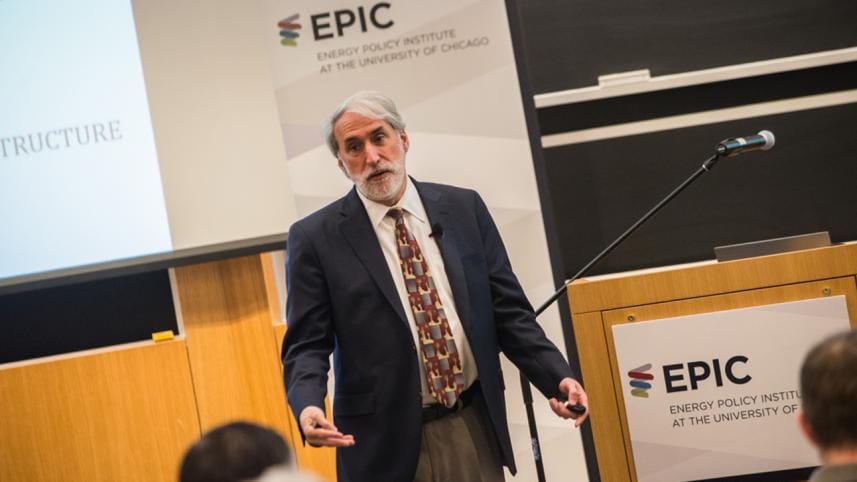Scientist engineers bacterium that produces energy

The chemist who gave us the artificial leaf has genetically engineered bacteria to absorb hydrogen and carbon dioxide and convert them into alcohol fuel, reports Forbes.
Daniel G Nocera, Professor of Energy at Harvard, was cautioned by other scientists that it would be difficult to achieve a productive level of efficiency when he started working with bacteria last year, reports Forbes.
At the time, Nocera was aiming for 5 percent efficiency—about 5 times better than plants. This month at the University of Chicago, he announced his bug converts sunlight ten times more efficiently than plants.
"Right now we're making isopropanol, isobutanol, isopentanol," he said in a lecture to the Energy Policy Institute at Chicago.
"These are all alcohols you can burn directly. And it's coming from hydrogen from split water, and it's breathing in CO2. That's what this bug's doing," reports
Nocera's artificial leaf, developed while he was at MIT, made a splash five years ago because the wafer of silicon and other elements can be dropped in water, exposed to sunlight, and it will continuously split the water into hydrogen and oxygen.
Hydrogen, a clean burning fuel, is typically made from natural gas in a process that emits greenhouse gases.
The leaf hasn't lived up to its promise, Nocera said, because the world isn't ready for hydrogen fuel.
"If I give you my renewable hydrogen the only thing you'll do is blow up balloons with it," he said. "There's no infrastructure for hydrogen."
But if hydrogen from the leaf can combine with CO2 to make alcohol fuel, the fuel can be used the way diesel is now.
So over the last 18 months, Nocera worked with biologists from Harvard Medical School to engineer a bacteria called Ralston eutropha to consume hydrogen and CO2 and convert them into adenosine triphosphate (ATP), the energy molecule used by natural organisms.
Building on discoveries made earlier by Anthony Sinskey, a professor of microbiology at MIT, they inserted more genes to convert the ATP into alcohol and cause the bacteria to excrete it.



 For all latest news, follow The Daily Star's Google News channel.
For all latest news, follow The Daily Star's Google News channel.
Comments